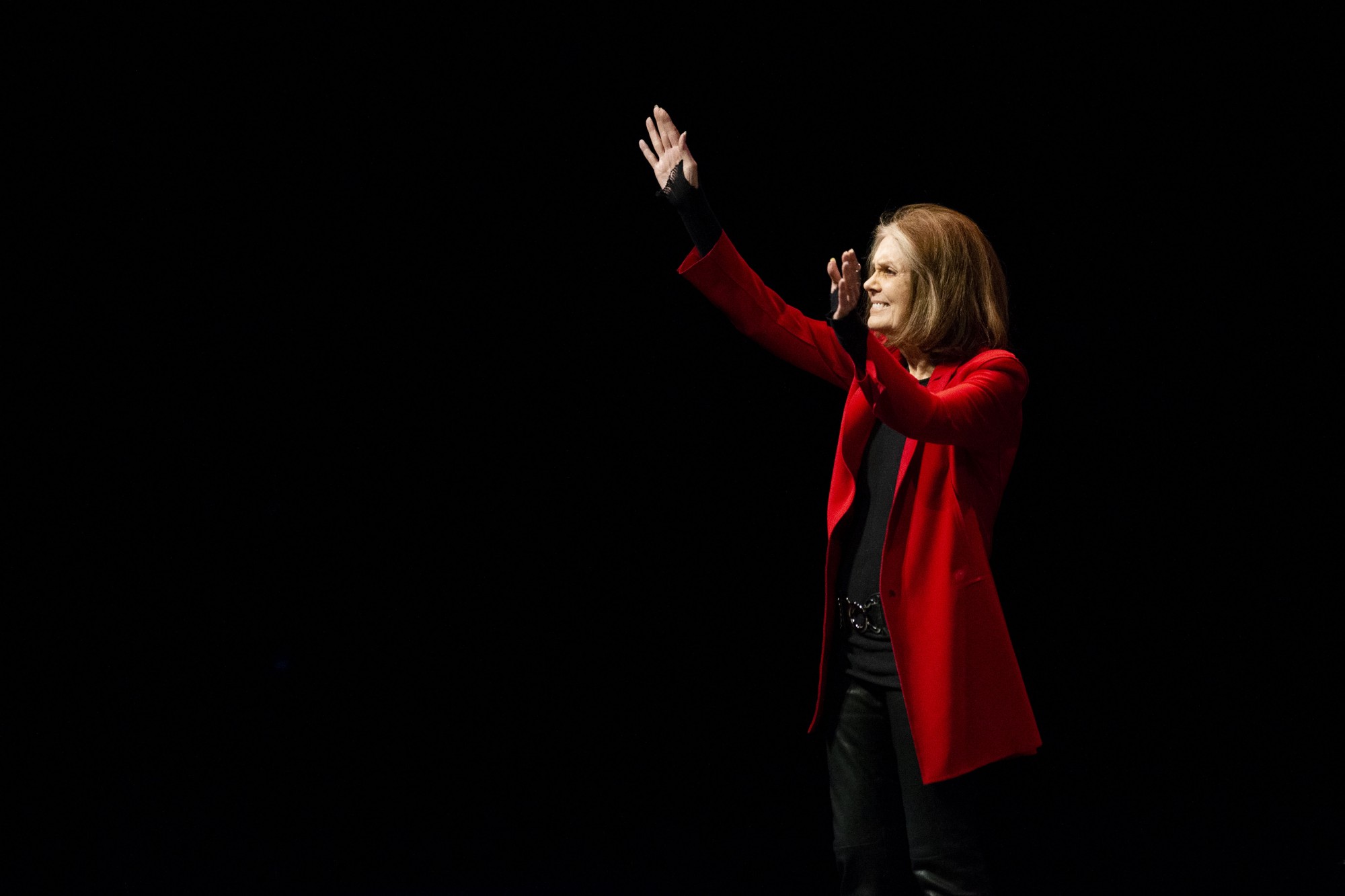Gloria Steinem spoke at the University of Minnesota Wednesday, where she discussed topics including he political activism and feminism throughout the past several decades.
The nearly sold-out Northrop Auditorium welcomed Steinem to discuss her career as an advocate for women’s rights with Kerri Miller, a host from MPR News. Steinem is the co-founder of Ms. Magazine, a feminist publication. She also worked as a columnist for New York Magazine and was awarded the Presidential Medal of Freedom by former President Barack Obama.
The lecture began with an introduction given by Humphrey School of Public Affairs Dean Laura Bloomberg, followed by a greeting from President Joan Gabel. Miller then brought Steinem to center stage a nd initiated the conversation.
Steinem started by acknowledging the large presence of Native American communities in Minnesota and the legacy of diverse cultures, in which equality and women’s freedom existed long before European settlers arrived.
“I think that some of the problem is that we don’t start history when people started, we start [history] when patriarchy or colonialism started,” she said.
When asked about what it would take for American society to accept a woman as president, Steinem said that a number of factors would play a role. The biggest barrier is changing how society views women in power, which can be changed by having men play an equal role in raising children, she said.
“We’re probably still mostly raised by women and that means that we associate female authority with childhood,” Steinem said.
University sophomore and political science major Rielle Miguel said while she was encouraged to attend the event by a friend, she said she was amazed by the lecture’s content.
“I pulled out a piece of paper just to write down this quote [Steinem said], ‘we learn not from sameness, but from difference’ and I think that just hit me and that was really inspirational,” she said.
University sophomore and art major Jordan Homstad said they found Steinem to be remarkably progressive despite being from an older generation.
“I think that she had a lot of important things to say about the intersection of gender equality and racism, but I do think that there is some further [progress] that needs to be done either by her or by further more people,” they said.
Sarah Lefor, a University junior studying strategic communications, said when she received a text about the event from her mom, she was excited and had never hit “submit” on a ticket order faster.
“I think that her points about empathy and how everyone, men and women, are equally responsible for bettering our society and creating an equal environment,” she said.








